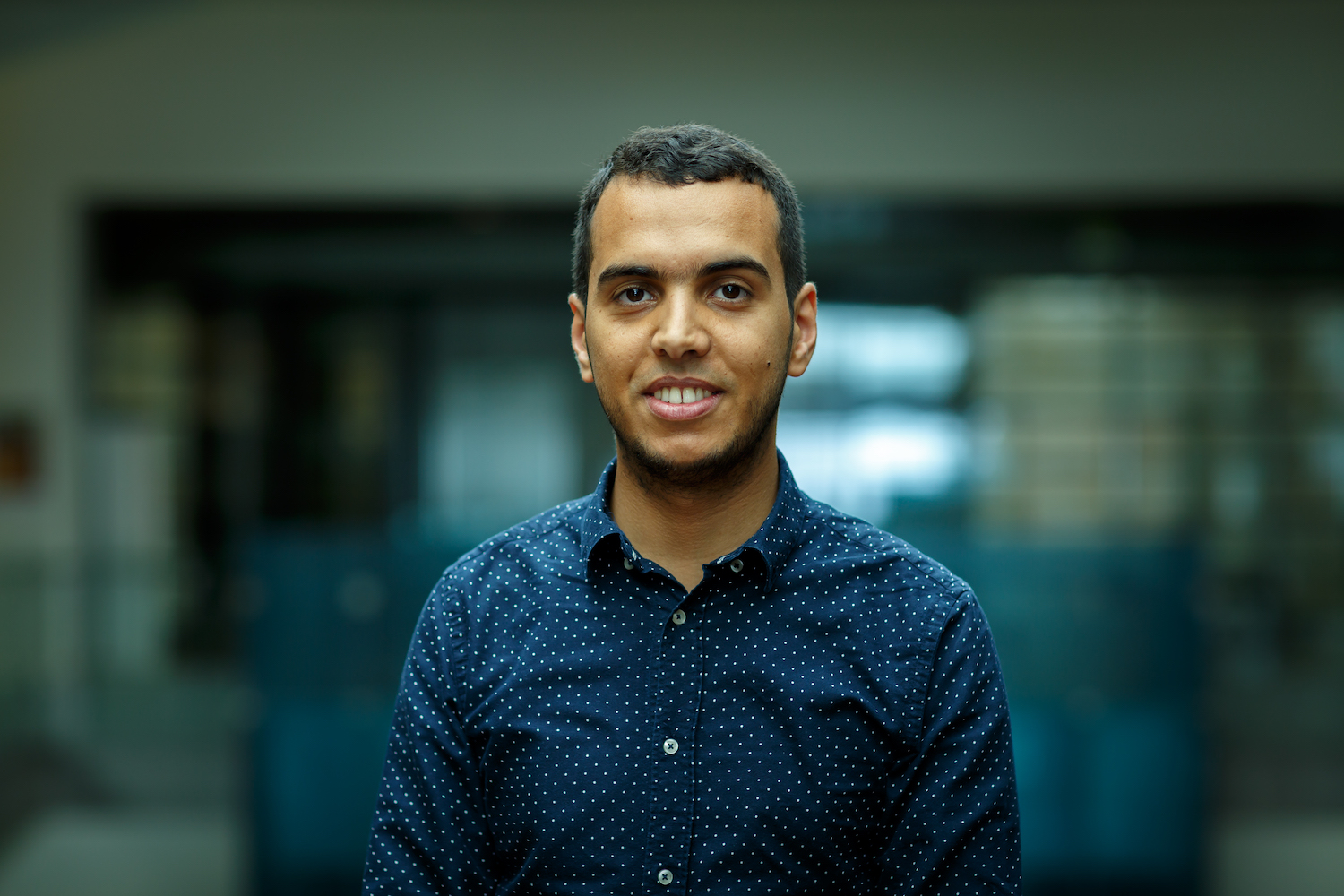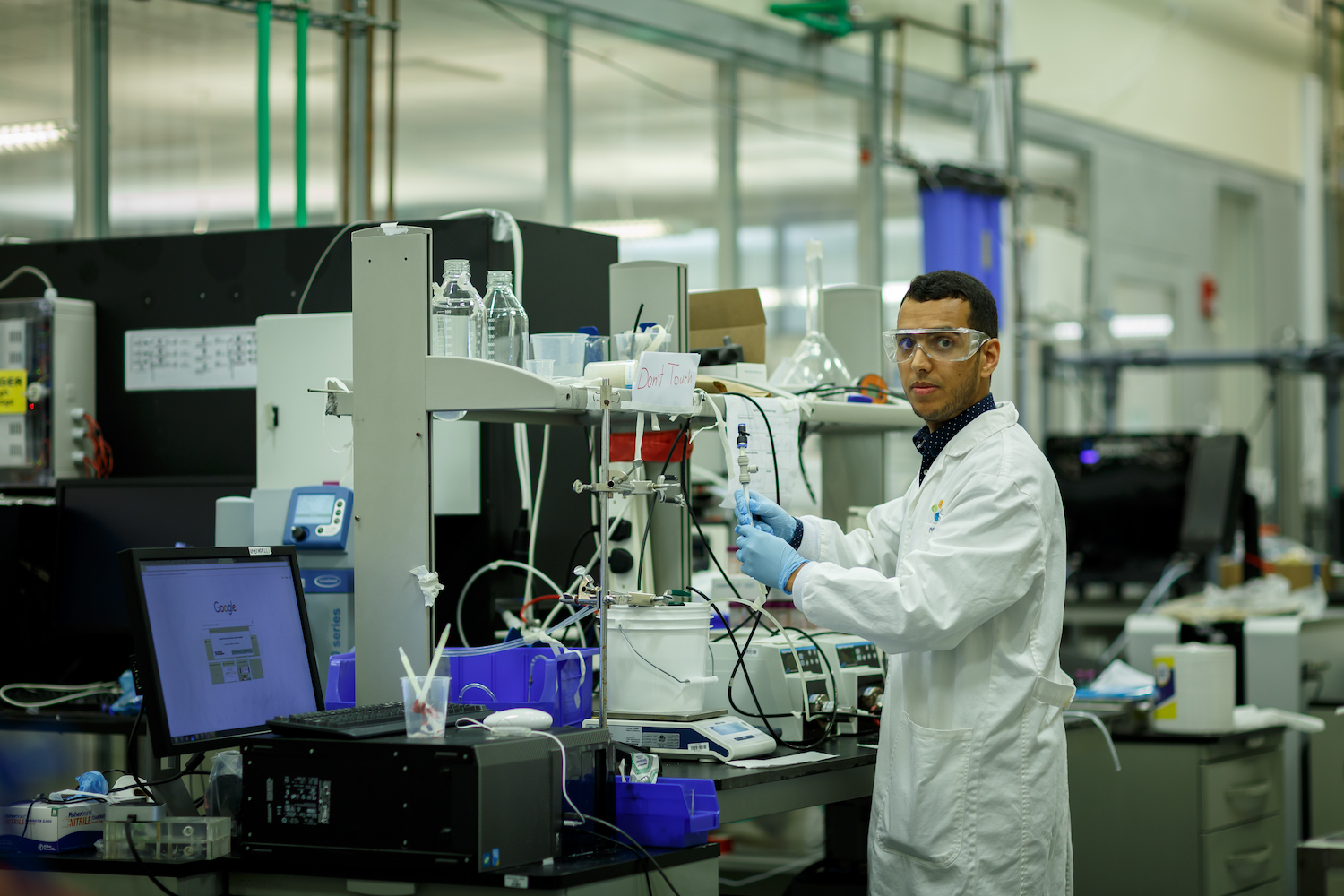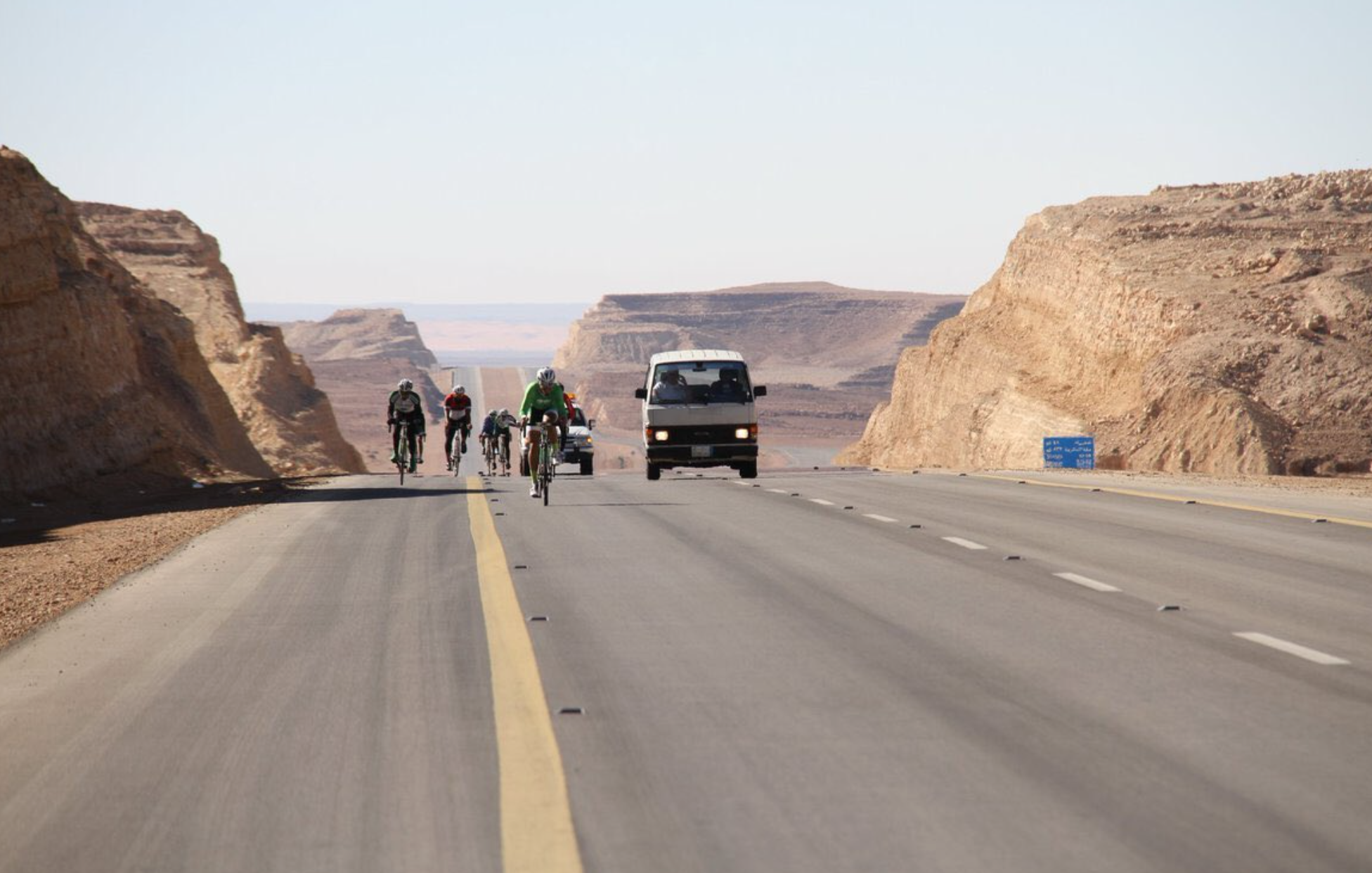Time in the saddle yields results

KAUST Ph.D. student Mousa Alharthi is studying for his degree at the University's Water and Desalination and Reuse Center. Photo by Asharaf Kannearil.
-By Nicholas Demille, KAUST News
A bike theft might be one of the best things that ever happened to Mousa Al-Harthi. Like many young Saudis, he studied outside the Kingdom during his undergraduate years—an experience that exposed him to new scientific concepts as well as new athletic pursuits.
"I started cycling in Australia during undergrad. I didn't have a car, so I had to buy a bike. It was just for commuting—to take me from point A to B. But my bike got stolen and I bought a better one that allowed me to tour around Toowoomba and take part in group rides. That got me interested in cycling as sport," he said.
In his day job, Al-Harthi is a Ph.D. student in the KAUST Water Desalination and Reuse Center, where he works on improving membrane desalination technologies. Half of his time is spent at a desk writing and running simulations, and the other half is spent in a typical lab environment doing bench-scale testing of membranes.

KAUST Ph.D. student Mousa Alharthi works in the lab in the Water and Desalination and Reuse Center. Photo by Asharaf Kannearil.
Al-Harthi is the primary reason why a group of KAUST cyclists began racing in Jeddah in 2017. He came upon Arabic language advertisements and translated them for his English-speaking colleagues in the Red Sea Cyclists self-directed group (SDG). The ads were from the Saudi Cycling Federation, a member of the Union Cycliste Internationale (UCI), which began holding amateur events in the Kingdom in 2017 in support of their Olympic track cycling team.
The Federation has a twofold mission to develop young, talented Saudis in the sport of cycling and to generate awareness about cycling at the amateur level in support of talent development. The Federation held a series of races around the Kingdom, several of which Alharthi and the KAUST team competed in, including staff, students and faculty members like Professor Martin Mai and Senior Research Scientist Thomas Finkbeiner.
KAUST Ph.D. student Mousa Alharthi (right) and members of the Deraileurs racing team made up of KAUST community members take part in a race in Jeddah in October 2017. File photo.
Saudi Arabia has won in the Olympics in the past, perhaps most notably with Hadi Alsomali (Alsoan) in the 400 meter hurdles. The Saudi Cycling Federation is looking to change that, in particular in the area of track cycling.
"I think cycling in Saudi Arabia really got a jump start with Vision 2030. The sport authority now has the funding and the initiative to support racing and talent development—it is very exciting," noted Al-Harthi.

Participants sprint to the finish line during a Saudi Cycling event in the scenic Edge of the World outside the capital city of Riyadh. Image courtesy of the Saudi Cycling Federation Twitter account.
"Reach out. Go and find other people who share your interests—like cycling. You'll find lots of other people doing the hobbies you enjoy. There are even apps like Strava where you can find them and train with them," he said.

